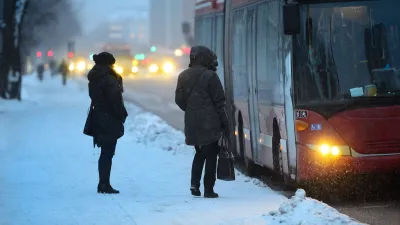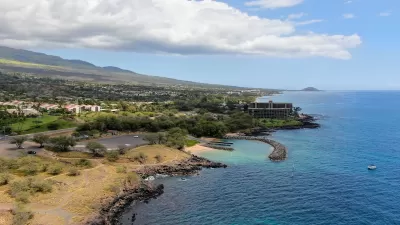Extreme weather events have had big city mayors across the world scrambling to clean up messes and prove their cities aren't falling apart. But the real issue is the climate, not the politics.
The Atlantic's Alexis Madrigal looks at how changing climate will continue to affect city operation, and how citizens are going to have to learn to not misdirect the blame.
"What you need to know is that your city -- pretty much wherever it is -- was built for a climate that it may no longer have. That's going to mean tough commutes during the winter and spending more money on air conditioning in the summer. It's going to mean that your city shuts down more often because some freaky thing happened that no one can remember happening in their lifetimes. It's going to mean the power's going to go out because the electric system in your area wasn't designed to handle the stresses it will be put under. Cities will have to get less efficient and more resilient. Redundancies will have to be built into systems that previously seemed to work just fine."
FULL STORY: Cities and Resilience: The Year Climate Started Hurting Politicians

Maui's Vacation Rental Debate Turns Ugly
Verbal attacks, misinformation campaigns and fistfights plague a high-stakes debate to convert thousands of vacation rentals into long-term housing.

Planetizen Federal Action Tracker
A weekly monitor of how Trump’s orders and actions are impacting planners and planning in America.

In Urban Planning, AI Prompting Could be the New Design Thinking
Creativity has long been key to great urban design. What if we see AI as our new creative partner?

King County Supportive Housing Program Offers Hope for Unhoused Residents
The county is taking a ‘Housing First’ approach that prioritizes getting people into housing, then offering wraparound supportive services.

Researchers Use AI to Get Clearer Picture of US Housing
Analysts are using artificial intelligence to supercharge their research by allowing them to comb through data faster. Though these AI tools can be error prone, they save time and housing researchers are optimistic about the future.

Making Shared Micromobility More Inclusive
Cities and shared mobility system operators can do more to include people with disabilities in planning and operations, per a new report.
Urban Design for Planners 1: Software Tools
This six-course series explores essential urban design concepts using open source software and equips planners with the tools they need to participate fully in the urban design process.
Planning for Universal Design
Learn the tools for implementing Universal Design in planning regulations.
planning NEXT
Appalachian Highlands Housing Partners
Mpact (founded as Rail~Volution)
City of Camden Redevelopment Agency
City of Astoria
City of Portland
City of Laramie




























